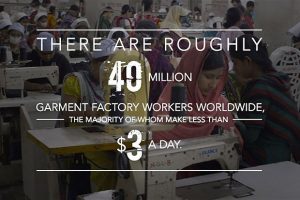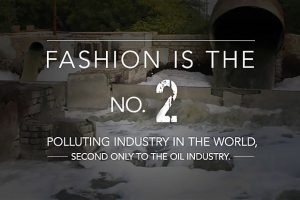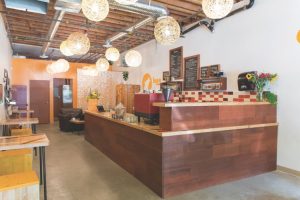
Given the semester has come to an end, I’ve been thinking about all the interesting conversations, mini-debates, and client challenges we have gone through during our class discussions. We turned some of the “In the News” topics (which I imagine were only meant to last a few minutes of our class time) into half an hour topics of discussion; inviting varying opinions from different backgrounds of education or even culture to challenge the opposing views.
We talked about the definition of sustainability (though I’m not sure we ever truly decided on one), about how marketing can be used as a force for good instead of simply a mechanism of inducing people to buy what they don’t need (or even want), about how to communicate value, and countless other topics that helped shape our understanding of sustainability marketing.
I was introduced to 3 inspiring and innovative companies. AYO Smart Homes, which educated me on the living conditions of some First Nation communities, as well as the efficiencies of a smart home and where they might be introduced to a larger market. Coast Protein, which displayed the difficulties of changing pre-existing opinions or behaviours to unfamiliar ideas, as well as how value can be created in a product. And finally, Terramera, which further exemplified the importance of using marketing to change pre-existing notions, the impact of normalizing a product, and especially the disgusting behaviour of bed bugs (ew).
We’ve covered a lot, but I think my biggest takeaways came from our engaging and fun in-class discussions. I loved hearing from everyone in the class about their understanding of a word or topic, or their opinion on a news story, or their thoughts on a controversial company. This class was filled with people from various backgrounds, whether you were on exchange, an international student or born and raised here in Vancouver, or whether you were in marketing, finance, sciences, or arts – we all got the opportunity to learn from each other.
So what ‘Value’ did this class serve? Perhaps it falls more under the category of ‘Intangibles’. A greater understanding of world views towards sustainability in business, in marketing, and in life. Here we have a class full of students that yearn to apply their knowledge of sustainability to their very own workplace, who aim to teach their friends about the differences between ‘the leaders’ and ‘the laggards’, and who have learned to not take no for an answer (but maybe we won’t tell everyone who we learned that from).
I always find myself walking out of that class hopeful for business and for the planet, and while I am sad that I no longer get to walk out of this class twice a week, I am confident that we are some of those leaders we learned about.

 I recently read
I recently read 
 Many of us have probably seen Al Gore’s “
Many of us have probably seen Al Gore’s “

 Just this past month Munich held the Sustainable Innovation for Sport 2017 forum. During the conference, the Paris 2024 Olympic Bid Committee “
Just this past month Munich held the Sustainable Innovation for Sport 2017 forum. During the conference, the Paris 2024 Olympic Bid Committee “
 Last class we spoke about the World Economic Forum that takes place in Davos, Switzerland, during which Corporate Knights released their annual “
Last class we spoke about the World Economic Forum that takes place in Davos, Switzerland, during which Corporate Knights released their annual “